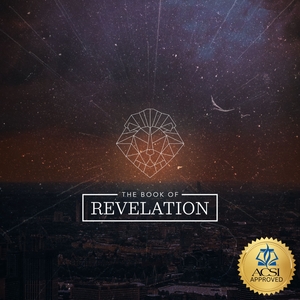How do you know Isaiah 2:10-4:1 is speaking of the Tribulation Period and not Judah's future captivity in Babylon that occurred about 100 years after Isaiah's time? Some of the details in these chapters of Isaiah seem to match both events.
The context of any passage determines the proper interpretation, and the context of Isaiah 2-4 is clearly speaking of the Tribulation and not the Babylonian invasion. For example, the passage begins this way:
Is. 2:2 Now it will come about that
In the last days
The mountain of the house of the LORD
Will be established as the chief of the mountains,
And will be raised above the hills;
And all the nations will stream to it.
Is. 2:3 And many peoples will come and say,
“Come, let us go up to the mountain of the LORD,
To the house of the God of Jacob;
That He may teach us concerning His ways
And that we may walk in His paths.”
For the law will go forth from Zion
And the word of the LORD from Jerusalem.
Is. 2:4 And He will judge between the nations,
And will render decisions for many peoples;
And they will hammer their swords into plowshares and their spears into pruning hooks.
Nation will not lift up sword against nation,
And never again will they learn war.
The opening context of the passage is undoubtedly speaking about the times of the Kingdom when the Lord will rule the earth from Jerusalem. Then the passage transitions to a description of the judgment that will precede the Kingdom period. This judgment will be far greater than any judgment experienced during earlier times, including the Babylonian captivity. Notice the details:
Is. 2:12 For the LORD of hosts will have a day of reckoning
Against everyone who is proud and lofty
And against everyone who is lifted up,
That he may be abased.
Is. 2:13 And it will be against all the cedars of Lebanon that are lofty and lifted up,
Against all the oaks of Bashan,
Is. 2:14 Against all the lofty mountains,
Against all the hills that are lifted up,
Is. 2:15 Against every high tower,
Against every fortified wall,
Is. 2:16 Against all the ships of Tarshish
And against all the beautiful craft.
Is. 2:17 The pride of man will be humbled
And the loftiness of men will be abased;
And the LORD alone will be exalted in that day,
The Babylonians did not destroy every tree, every mountain, every tower and every wall in the land. Nor did Babylon humble every proud man nor was the Lord the only One exalted in that day. Once again, the language of the text is clearly speaking only of the Tribulation and not of some earlier battle.
Furthermore, the text describes great calamities on the earth:
Is. 2:19 Men will go into caves of the rocks
And into holes of the ground
Before the terror of the LORD
And the splendor of His majesty,
When He arises to make the earth tremble.
Is. 2:20 In that day men will cast away to the moles and the bats
Their idols of silver and their idols of gold,
Which they made for themselves to worship,
Is. 2:21 In order to go into the caverns of the rocks and the clefts of the cliffs
Before the terror of the LORD and the splendor of His majesty,
When He arises to make the earth tremble.
In this day of judgment, the earth will tremble, but that did not happen in the days of Babylon's attack. This is a reference to the supernatural judgments of the Tribulation period.
Finally, the passage ends with a promise that the judgment will give way to glory for the survivors of Israel:
Is. 4:2 In that day the Branch of the LORD will be beautiful and glorious, and the fruit of the earth will be the pride and the adornment of the survivors of Israel.
Is. 4:3 It will come about that he who is left in Zion and remains in Jerusalem will be called holy — everyone who is recorded for life in Jerusalem.
Is. 4:4 When the Lord has washed away the filth of the daughters of Zion and purged the bloodshed of Jerusalem from her midst, by the spirit of judgment and the spirit of burning,
Is. 4:5 then the LORD will create over the whole area of Mount Zion and over her assemblies a cloud by day, even smoke, and the brightness of a flaming fire by night; for over all the glory will be a canopy.
The Lord will reign over the earth and over Israel, those recorded for life in the Kingdom. He will occupy Mt. Zion in a flaming fire. Clearly, none of these things accompanied the Babylonian captivity.
The fact that the battle descriptions are similar to the Babylonian invasion is not the basis for proper interpretation. Every human conflict is similar to some degree, but proper interpretation rests on observing the context of the passage carefully.
Scripture quotations taken from the (NASB®) New American Standard Bible®, Copyright © 1995, 2020 by The Lockman Foundation. Used by permission. All rights reserved. www.lockman.org







